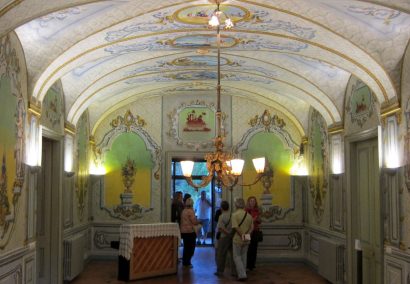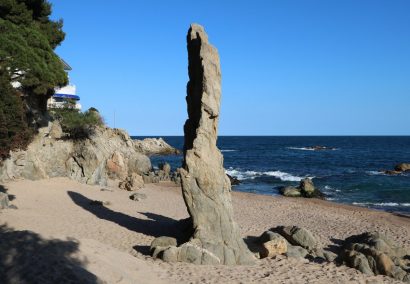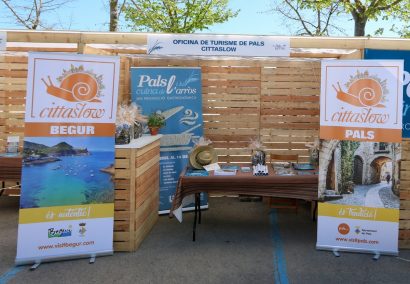“Who cares, I’m only going to sleep here,” — this is my usual thought upon discovering the minuscule size of my hotel room. If it happens to be a luxurious 5-star hotel or a two-bedroom apartment rental, justifications like that are rarely needed, but the sentiment is still the same. We book hotels and rent apartments not to stay in them 24/7, but to get out and explore new places, local customs and cuisine, discover museums and beautiful city views.
When the need for security (or laziness) strikes and I find myself ordering a generic “European” dish at a hotel restaurant, I quietly despise myself, imagining a small guest house somewhere nearby where the owner is grilling freshly shot game over an open fire for her guests, infiltrating the nearby homes with aromatic smoke.
It is pleasantly surprising, then, to discover an already a hundred-years-old concept of sparing travellers such an anguish by turning monasteries, castles and palaces in picturesque places into beautiful hotels set against the backdrop of local natural beauty, steps away from restaurants specializing in traditional local cuisine.
The idea came from a Spanish civil servant charged with elevating rural tourism at the beginning of the 20th century; a private sector entrepreneur, of course, wouldn’t have access to many square feet of culturally and historically significant heritage buildings. The project was named Paradores, back then a humble nickname, as it signified a simple place to stay akin to a motel.
The picturesque corner of the Sierra de Gredos mountain range hosted the inauguration of the first parador in 1928; the spot was personally chosen by King of Spain Alfonso XIII. In the following five years, the network of paradors expanded to Ciudad Rodrigo (Salamanca), Oropesa (Toledo), Úbeda (Jaén), and Mérida (Badajos). The Civil War and the Second World War certainly shifted the government’s priorities, but the network continued to grow afterwards, including 40 paradors by the early 1960s.
By the end of the 2010s, which was the decade of the tourism and travel boom in Spain, there have been 83 paradors in total! As of today, the number is 94, and each Spanish autonomous region (except for the Balearic Islands) counts at least one parador on its territory.
You may assume that a stay in a parador would be expensive, but for the most part, you would be (happily) wrong: the majority of paradors in the network are rated 3* and 4*. The only 5-star paradors are found in Santiago de Compostela and León. Throughout the year, special offers and packages provide significant savings — for instance, there is a discount for young travellers under 30 years old.
(Yours truly turned 30 god knows how long ago, so I pay attention to other types of deals, mostly thematic travel offers: a week-long immersion into the winemaking in Galicia, a tour in the footsteps of Miguel de Cervantes or a three-day stay in Medieval castles in Castille…)
In the last several years, an inner subcategory of specialized hotels has been forming within the Parador network, called Los Paradores Museo. Upon check-in to one of them, the guest receives not only the room key but also a detailed guide with maps, plans and photos of the historical object in which they will be staying the night. Learning the detailed history of the building — the way it was used, the people who frequented it, the hidden and significant meanings behind its architecture and decorations — is the goal, promising not only a restful sleep but also very exciting dreams after the fact.
Here are the participants in Los Paradores Museo:
- a Medieval castle in Cardona (the province of Barcelona)
- San Marcos Monastery just outside León
- the Benedictine monastery San Pedro de Villanueva in Cangas de Onis (Asturias)
- the Palace of the Dean Ortega in Úbeda (Jaén)
- the Castle of Los Álvarez de Toledo in Oropesa (Toledo)
- the Sultan Boabdil Palace (Palace of Dar al-Horra) in Alhambra, Granada
- the Royal Hospital (the Hostal de Los Reyes Católicos) in Santiago de Compostela
- the Benedictine monastery Santo Estevo in Ourense (Galicia)
Staying in a parador is an amazing concept that’s further elevated by the fact that your overnight stay will become an exciting and memorable part of your travel. Do go out of your way to book a night in one!
—Alejandro Aribau



